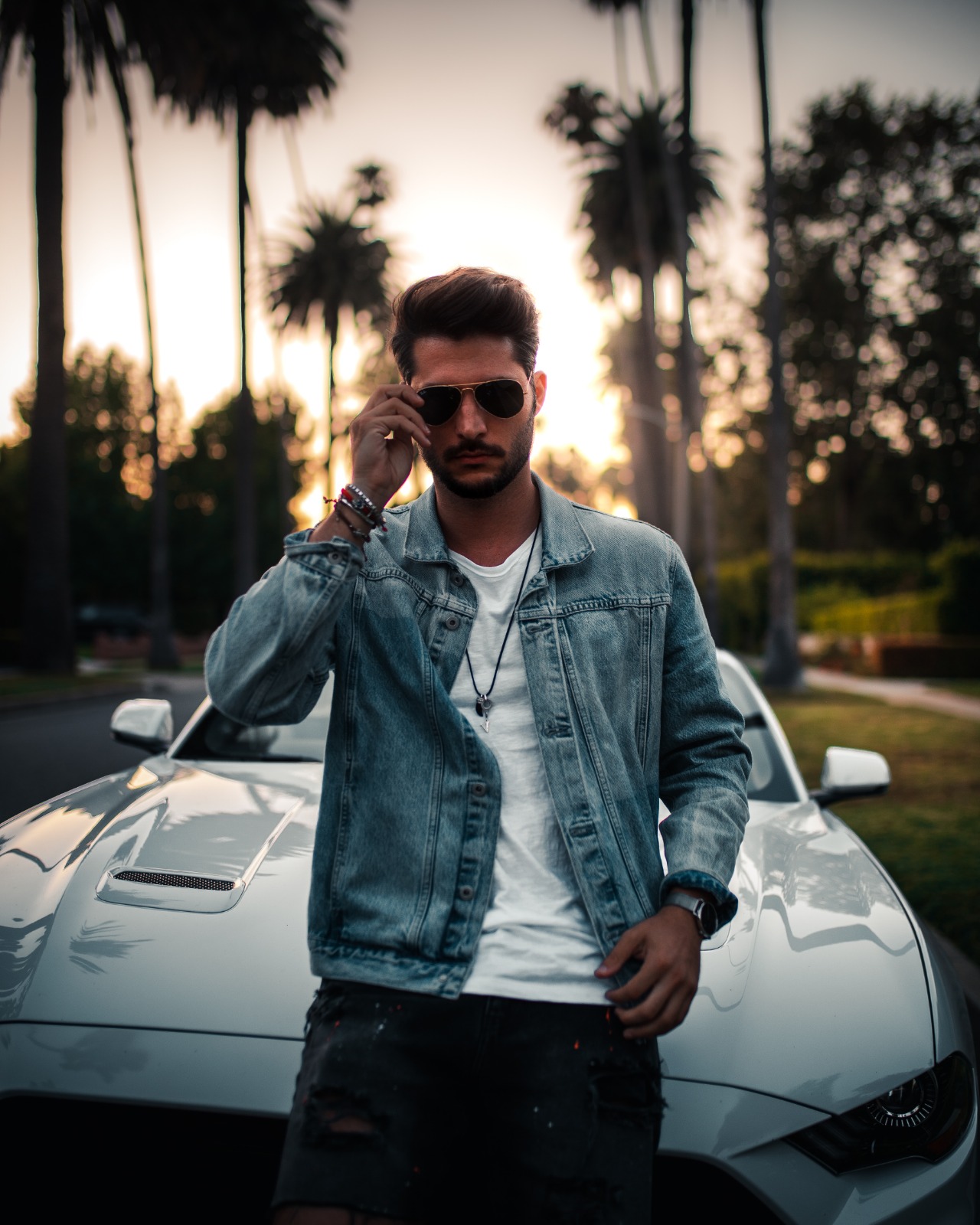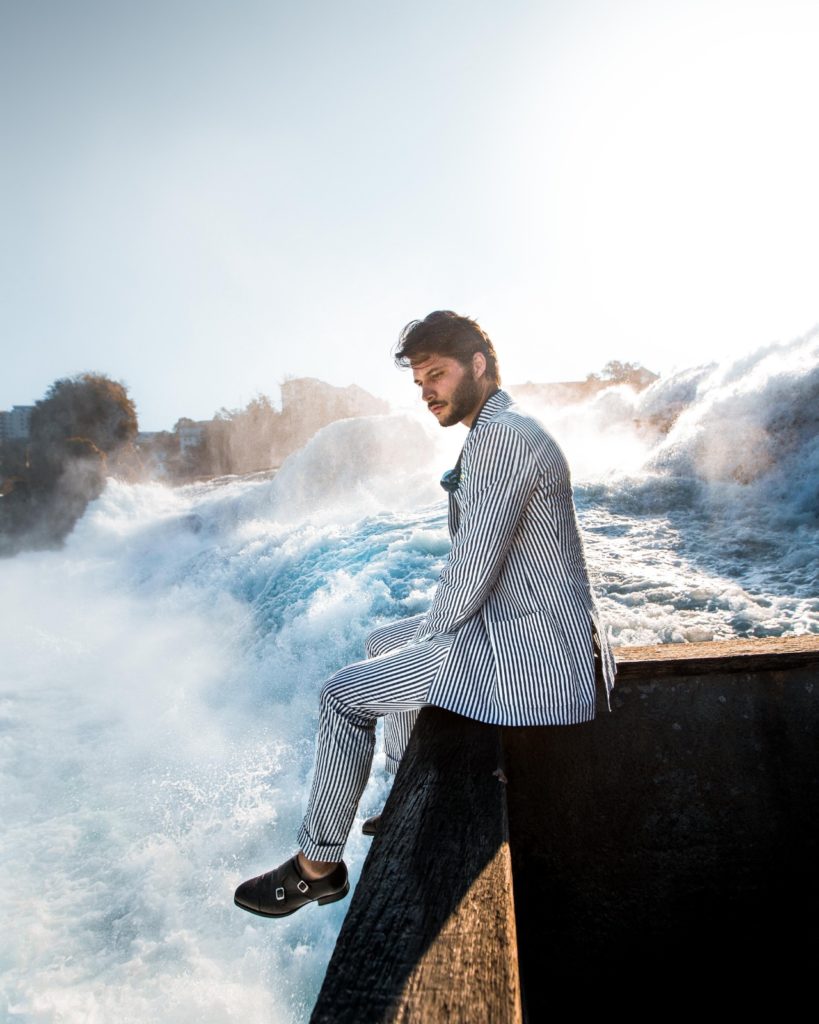Lifestyle
Marco Varga – Footballer, Photographer, Influencer, He Has Done It All

Marco Varga, a Swiss-born photographer, was a professional soccer player till the age of 25. And now, he is not just a professional photographer, much-admired for his beautiful clicks, but he is also a renowned filmmaker and social media consultant. If there is one person who can teach the present generation a thing or two about having your cake and eating it too, it would be Marco!
His website describes him as a “Creator of quality designs and thinker of fresh ideas” but if you take a look at his early life, Marco was set for a totally different life. Growing up in a pristine Swiss village of Urdorf, Marco started playing soccer at the age of 5. After playing for the village team, FC Urdorf, till the age of 12, Marco was transferred to the prestigious Grasshoppers Club Zurich where he put himself head first into building a career of a professional footballer.
He was one month into his University education and 20-years-old when he signed his first professional soccer contract. It was at that time that he decided to quit the traditional education and focus completely on soccer as a career. He realized his dream and played professional soccer for the next five years. However, at 25, it was time to reorganize his priorities, simply because he could not achieve that stage in his sports life, where he could think of being a soccer player forever.
He took a U-turn towards his University education & became a graduate of the University of Economy in Zurich. After passing out, he went on to work for IBM. But that was again a stopover rather than the final destination.

During his time at University, Marco dabbled in modelling and went on Instagram to share his photographs with his followers. With the increase in his followers on social media, he began to receive influencer campaigns to execute. Then, one thing led to another and soon Marco was wielding the camera to capture images of himself and his surroundings. And now, for the past four years, he has been working as a content creator for several big companies, with his main goal to “produce captivating social media content.” He lives in and operates from Zurich. He is also fluent in English, German and Italian. Marco worked real hard to learn the photography and videography skills such as Adobe Photoshop, Adobe Lightroom, Adobe Premiere Pro, Adobe After Effects, etc.
So far, he has done campaigns with such prestigious clients like Zalando, Mercedes, IWC, Hotelplan, Victorinox, Migros, IWC, SIGG, Nirvan Javan, JOBS, Decathlon, etc.
Speaking about the period of his last switch in careers, Marco says, “I started as a fashion influencer as I got more and more attention because of my modelling pictures. But I always saw my modelling career as a 2nd income. It was more a way to earn money than an addiction. I always wanted to travel and take pictures of the beauty of nature.”
After opening his social media content creation company, dmus-media, with a partner, he has been travelling the world with his girlfriend.
Lifestyle
When Seasons Shift: Dr. Leeshe Grimes on Grief, Loneliness, and Finding Light Again

Some emotional storms arrive without warning. A sudden change in weather, a holiday approaching, or even a bright sunny day can stir feelings that don’t match the world outside. For many people, the hardest seasons are not defined by temperature; they are defined by what’s happening inside, where grief and loneliness often move quietly.
This is the emotional terrain where Dr. Leeshe Grimes has spent her career doing some of her most meaningful work. As a psychotherapist, registered play therapist, retired U.S. Army combat veteran, and founder of Elevated Minds in the DMV area, she understands how deeply seasonal shifts and unresolved grief can affect people. Her upcoming books explore this very space, guiding readers through the emotional weight that can appear during different times of the year.
What sets Dr. Grimes apart is her ability to see clearly what many people overlook. Seasonal depression, for example, is usually tied to winter months. But she often sees it appear during warm, bright seasons, the times when the world seems happiest. For someone already grieving or feeling disconnected, watching others travel, celebrate, or gather can create its own kind of heaviness. Sunshine doesn’t always lift the mood; sometimes it highlights what feels missing.
The same misunderstanding surrounds grief. Society often treats it as a short-term experience with predictable phases and a clean ending. But in her practice, Dr. Grimes sees how grief keeps evolving. It doesn’t disappear on a timeline. It weaves itself into routines, memories, and milestones. People learn to carry it differently, but they rarely leave it behind completely. And that’s not failure, it’s human.
Her approach to mental health centers on truth rather than pressure. She encourages clients to acknowledge the emotions they try to hide: sadness that lingers longer than expected, moments of joy that feel out of place, and the waves of loneliness that return even when life seems stable. Instead of pushing for quick recovery, she focuses on helping people understand how emotions shift and how to care for themselves through those changes.
Much of her insight comes from her military years, where she witnessed the emotional toll of loss, transition, and constant survival. She saw how people continued functioning while carrying pain that had nowhere to go. That experience shaped her belief that healing requires space, space to feel, to speak, and to move through emotions without judgment.
In her clinical work today at Elevated Minds, she encourages people to build small, steady habits that anchor them during difficult seasons. Journaling helps them recognize patterns and name what feels heavy. Community support breaks the cycle of isolation. Therapy creates a place where emotions don’t have to be minimized or explained away. And intentional routines, daily sunlight, mindful breaks, and calm evenings help rebuild emotional balance.
Her upcoming books expand on these ideas, offering practical guidance for navigating both grief and seasonal depression. She focuses on helping readers understand that healing is not about escaping pain. It’s about learning how to live with it in a healthier way, honoring memories, acknowledging loneliness, and still allowing room for moments of light.
What makes Dr. Leeshe Grimes a compelling voice in mental health is her ability to bring language to experiences that many struggle to explain. She reminds people that emotional seasons don’t always match the weather and that there is no single path through grief. But within those shifts, she believes there is always a way forward.
The seasons will continue to change. And with the right tools, compassion, and support, people can change with them, finding steadiness, softness, and light again, one step at a time.
-

 Tech5 years ago
Tech5 years agoEffuel Reviews (2021) – Effuel ECO OBD2 Saves Fuel, and Reduce Gas Cost? Effuel Customer Reviews
-

 Tech6 years ago
Tech6 years agoBosch Power Tools India Launches ‘Cordless Matlab Bosch’ Campaign to Demonstrate the Power of Cordless
-

 Lifestyle7 years ago
Lifestyle7 years agoCatholic Cases App brings Church’s Moral Teachings to Androids and iPhones
-

 Lifestyle5 years ago
Lifestyle5 years agoEast Side Hype x Billionaire Boys Club. Hottest New Streetwear Releases in Utah.
-

 Tech7 years ago
Tech7 years agoCloud Buyers & Investors to Profit in the Future
-

 Lifestyle5 years ago
Lifestyle5 years agoThe Midas of Cosmetic Dermatology: Dr. Simon Ourian
-

 Health7 years ago
Health7 years agoCBDistillery Review: Is it a scam?
-

 Entertainment7 years ago
Entertainment7 years agoAvengers Endgame now Available on 123Movies for Download & Streaming for Free
